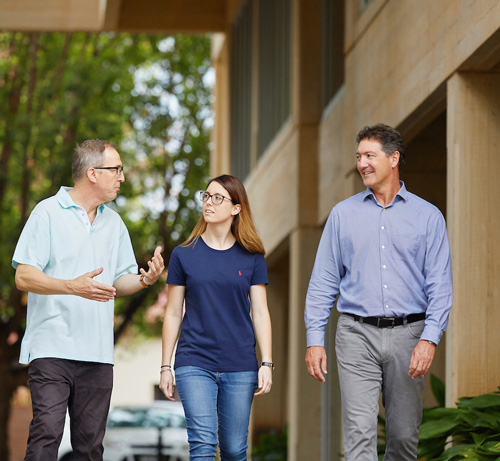A number of key committees, related to research activities, overall management and participant engagement, help oversee and provide input into key portfolios.
The Raine Study Scientific Review Committee
The Scientific Review Committee was established to provide high quality review of scientific projects and science strategy in relation to the utilisation of the longitudinal data and biosamples provided by the Raine Study participants.
The Raine Study Scientific Management Committee
The Scientific Management Committee manages science related activities for the Raine Study. The Scientific Management Committee meeting involves the Scientific Manager, Scientific Director, Director, Data and Biosamples Manager and the Follow-up Coordinator.
The Raine Study Operations Management Committee
The Management Committee is made up of leaders of each portfolio as well as two participant representatives from our Community Advisory Committee. The role of this committee is to have oversight of what is happening across the whole enterprise.
The Raine Study Community Advisory Committee
Participant engagement is at the heart of all we do at the Raine Study, so participant involvement is embedded across each of our core functions.
We have participants representing both our Gen1 and Gen2 participant groups and each sits on various committees across the organisation, including our UJV Board and all committees listed above.
Leadership of the participant engagement is through the Community Advisory Committee. This committee meets quarterly with the Raine Study team and researchers, and helps guide the future direction of the Raine Study, providing input into issues raised by staff, researchers and our partners.
We also have a broader network of participants who go beyond our core committee who are involved in decision making and individual research projects.
We also have leaders of each of our Special Interest Groups (SIG) who are responsible for stimulating and facilitating collaborative development of their area of interest. They also guide researchers interested in the area to consider undertaking other multidisciplinary research activities that include identifying collaborative opportunities, research projects and funding.

